Is a grand coalition the only way Macron can stop France's far right?
The Nouveau front populaire left alliance could make up a large part of France's next National Assembly. But it has prevented Emmanuel Macron from emerging as the automatic anti-far-right vote.
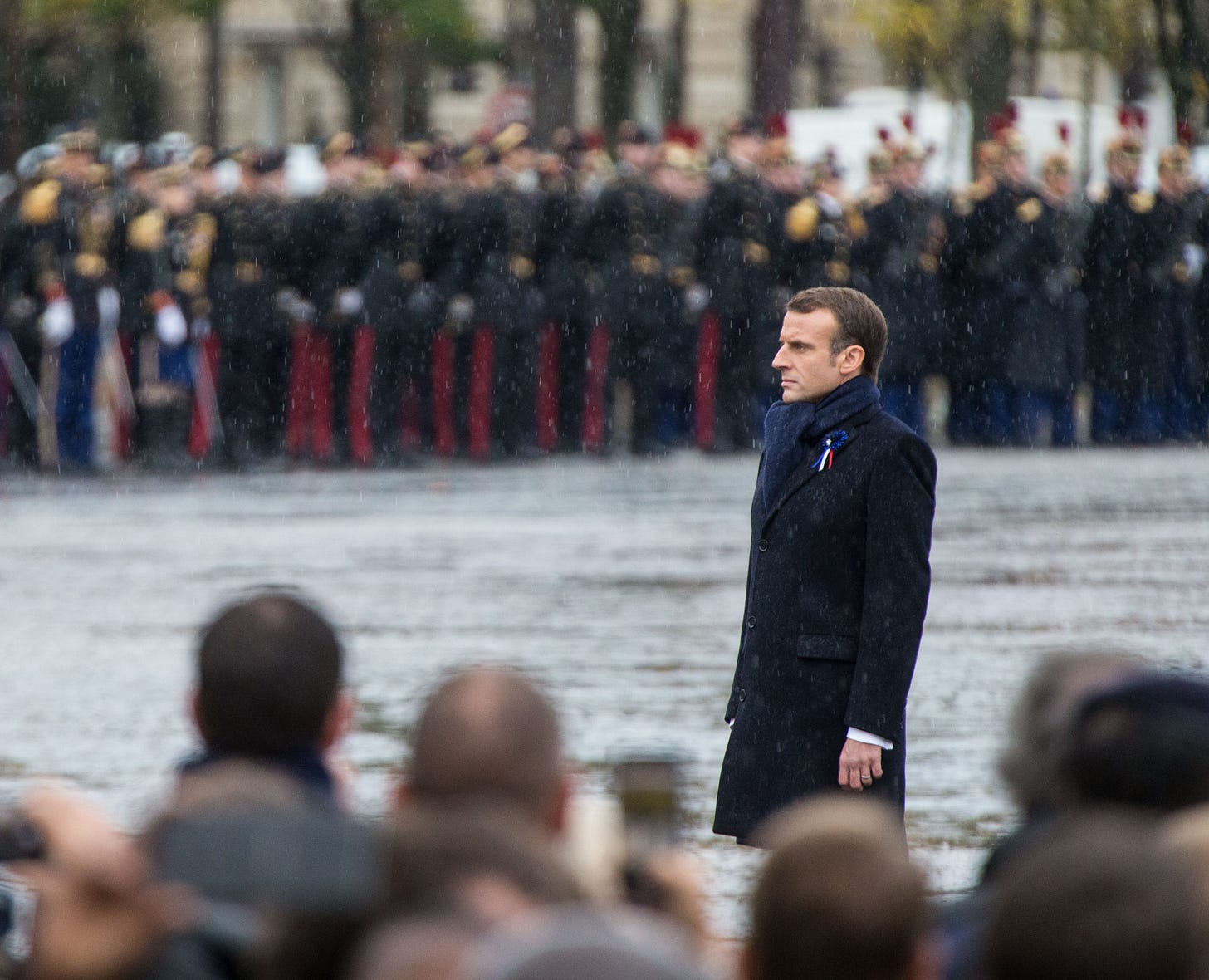
Emmanuel Macron likes being in control.
Since coming into office in 2017, he has earned a reputation for his centralised, “jupitérien” approach to politics, for being the photo-op-ready air-puncher-in-chief during major national moments, and for being Europe’s golden boy.
But in the last few weeks, he has certainly experienced what it’s like to be disorientated.
*An important disclaimer before you read this article. Conclusions are based on the few opinion polls available projecting National Assembly seats after the results of the election’s second round. Scroll down to the “That said, French politics is unpredictable” section to read it!
Macron, weaker than ever, must have hoped to be the automatic anti-far-right candidate

The centrist parliamentary grouping Ensemble, led by Macron’s own party, Renaissance, is lagging behind in the polls as the second round of snap parliamentary elections approaches on Sunday. Those elections were triggered following Renaissance’s already lacklustre performance in last month’s EU elections, where support for the far-right Rassemblement national (RN) soared and saw them take a 15% lead on Ensemble.
All of this takes place against an already tense, yet workable, parliamentary backdrop, the president’s centrist forces having lost their parliamentary majority in the 2022 parliamentary elections.
It seems that Macron hoped to regain control by using this week’s snap elections to position himself as the go-to anti-far-right candidate in the face of Jordan Bardella and Marine Le Pen’s RN, following several years of French votes that have increasingly centred around the divide between so-called ‘republican’ (i.e. ‘traditional’) and ‘extreme’ parties. Macron must have hoped that he would consolidate the vote against RN.
Having slowly grown their vote share over the last decade, and benefitting in this election from the support of around half of the usual centre-right party (Les Républicains), RN and allies are projected to take between 230-280 (Ipsos) or 255-295 (Elabe) seats in the second round of the parliamentary elections on Sunday, putting RN close to the 289 needed for an overall majority.
If Macron’s strategy was to regain control easily as the automatic ‘republican’ front, anti-extreme-right ticket in a situation where many are calling for a ‘barrage’ against Bardella and Le Pen, his hopes have been dashed.
On course for only 70-100 (Ipsos) or 90-125 (Elabe) seats in the National Assembly, the centrist Ensemble grouping that Macron’s Renaissance party leads along with several other smaller parties may only be the third largest. He may lose a lot - an imperfect but feasible relative majority in the National Assembly and three further years in the Elysée that few would have tried to question.
The broad-left NFP grouping may make up a large part of the next National Assembly
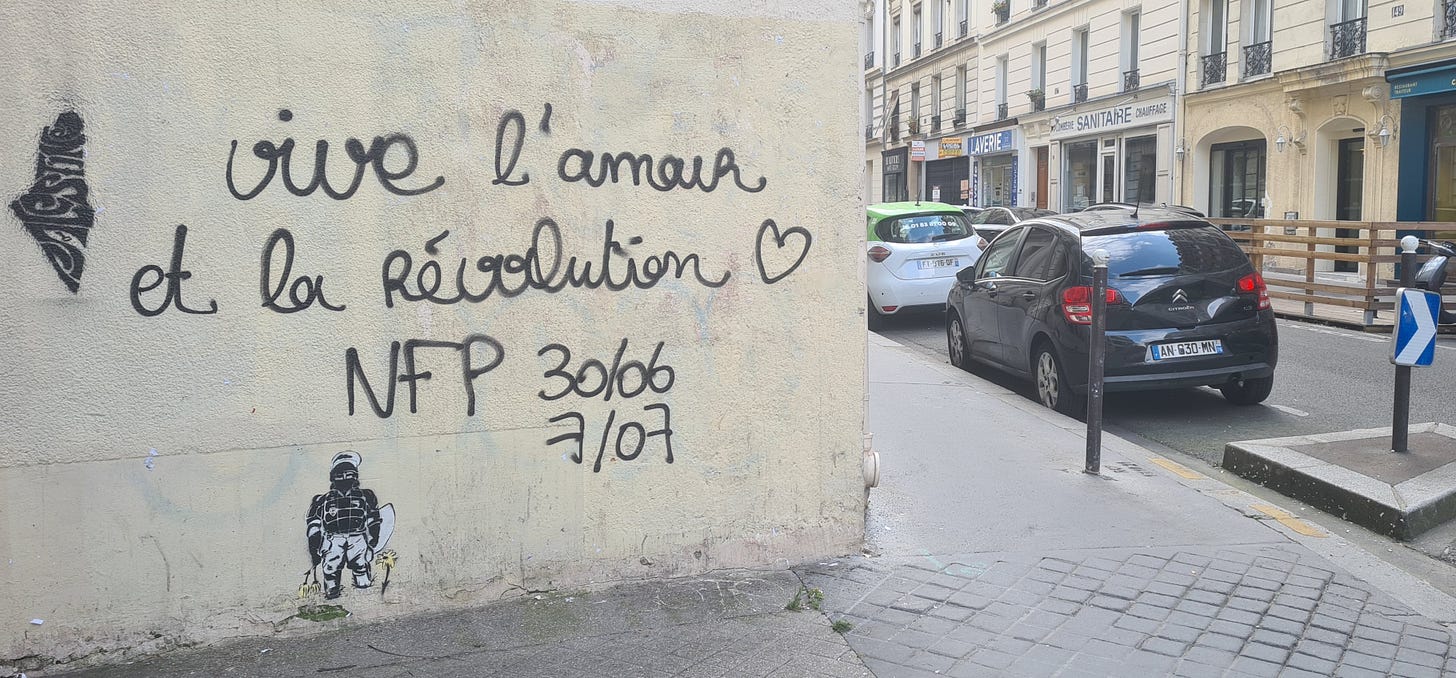
Macron may not have expected the broad-left Nouveau front populaire (NFP) alliance to organise so quickly an otherwise fragmented and polarised French left. Essentially replacing the Nouvelle Union populaire, écologique et sociale (NUPES) which was founded, and more or less led by, the radical-left party La France Insoumise (LFI), the new NFP appears to aim to drive the left back towards the centre ground, after the success of centre-left candidate Raphaël Glucksmann of the Place publique party in the recent European elections. It brings together politicians from LFI, the Parti socialiste (PS), the country’s green party (Europe Écologie Les Verts, or EELV) and the Parti communiste français (PCF).
The NFP grouping could hold a large number of seats in a fragmented National Assembly, with a predicted 125-164 (Ipsos) or 120-140 (Elabe) seats.
This will have caused frustration in Macron’s weakened centrist camp, if it hoped to be the automatic ‘republican barrage’ party running the rally against RN.
There are concerns over the radical left
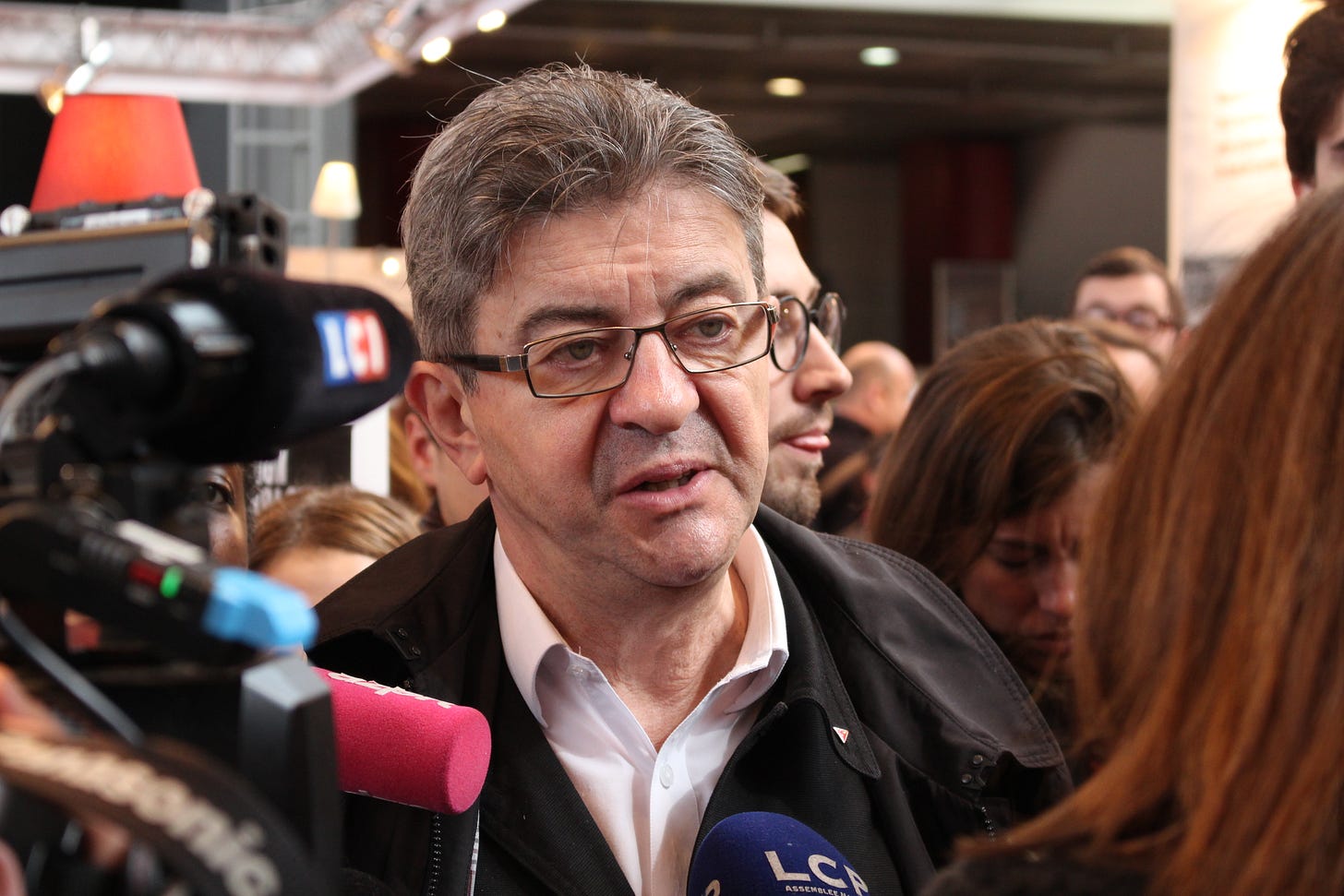
While it has agreed to stand down some of its candidates in favour of the NFP where the second-round vote in a constituency would otherwise involve a three-way race where RN currently leads and the opposing ‘republican’ vote would otherwise be split between them and the NFP, the centrists looks keen to distance themselves at all costs from any suggestion that it would endorse or rally with the left - especially in cases where it would involve voting for a candidate from the more radical LFI.
The ‘macroniste’ prime minister, Gabriel Attal, said on TV last night that the “withdrawal [of candidates] does not mean rallying [together].”
He appeared to take issue specifically with LFI: “I have been opposed to La France Insoumise enough so that I cannot be accused of an alliance or anything else.”
The message seems clear - while the centrists have at the time of writing withdrawn 79 candidates, and the parliamentary projection favours NFP as perhaps the first- or second-largest anti-RN party in the National Assembly, the president’s centrists are keeping their distance from the left, arguing that LFI is too radical, verging on extreme.
But that’s while Mr Attal said on Sunday evening that “our objective is therefore clear: to prevent RN from having an overall majority in the second round.” Some French people I have spoken to believe that the governing centrists should be clearer, calling on withdrawals to benefit NFP in all cases where Ensemble could split the vote.
A grand coalition against the far right?
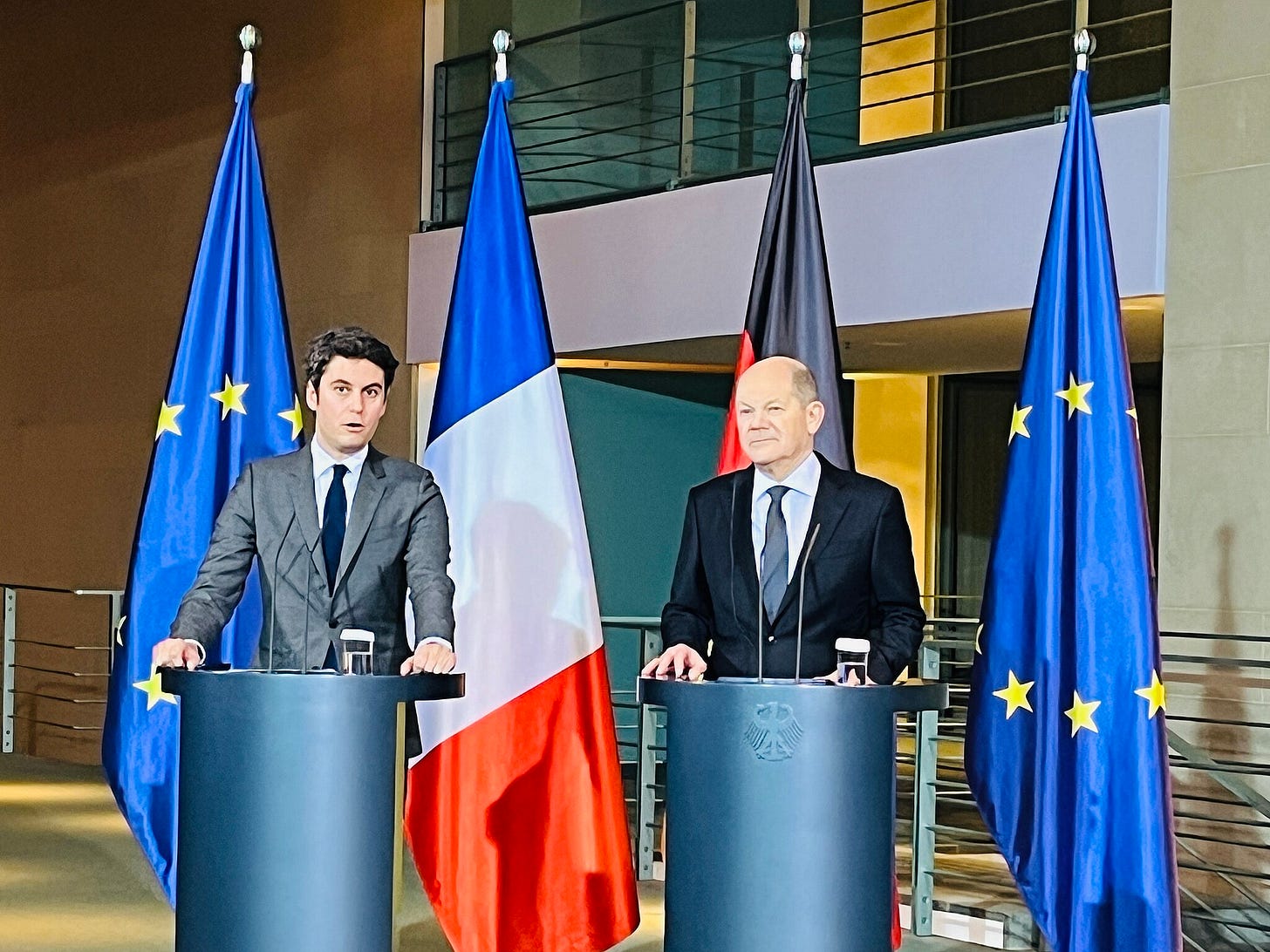
Similar comments qualifying the governing centrists’ concessions to the left have been made by current government minister Aurore Bergé, who said on TV yesterday: “I am the first to be appalled by what has happened to a part of the left. It doesn’t make me happy. But joining forces with LFI? Stand in front of the French beside [the Franco-Palestinian lawyer] Rima Hassan? No, it’s indefensible.”
Former Macronist prime minister Édouard Philippe, whose small centre-right party Horizons contains critical but often cooperative friends in the National Assembly of the presidential camp, also said on Sunday evening that: “No votes should be placed on RN candidates, but also on those of LFI, with whom we diverge, not only on policies but also on fundamental values.”
Some headlines during the campaign spoke of an LFI “purge” at the time of NFP’s arrival (seemingly to give the impression that NFP is turning further towards the centre left than the hard left). And there has bee significant controversy in previous months and years surrounding things such as LFI’s policies on the Israel-Hamas conflict, and LFI’s governance structure.
But some have taken issue with the decision to equate LFI with RN, which not all place on equal footings. Additionally, in the French Interior Ministry’s classification of parties ahead of the parliamentary elections, RN was placed in the “extreme right” category while LFI was among the parties deemed to be on the “left”. The Conseil d’État, which serves as a legal adviser to the French executive and as the supreme court for administrative justice, has also said that LFI does not qualify for recognition as “extreme left”.
All this considered, NFP’s influence in these elections must be qualified by the fact that it too has had to make large concessions.
It announced almost immediately after the first-round results came out on Sunday evening that it would be standing down candidates where they had come third place and would otherwise challenge ‘republican’ Macronist candidates. 128 NFP candidates have stood down, while only 79 centrist candidates have at the time of writing, meaning a larger number of centrist candidates will face the RN in second-round run-offs than NFP candidates.
But taking the long view, the NFP still looks set to hold significant sway in the National Assembly, outdoing the presidency-backed grouping.
Despite Macron’s centrists keeping their distance with the NFP, will some level of cooperation with the left be required if they want to succeed in blocking the road for RN fully - if they only have a relative majority - and potentially challenge their ability to govern in the National Assembly by mounting a larger force between them, with the help of the centre-right?
According to the Ipsos and Elabe final seat projections, Ensemble and the NFP could have as many as 265 seats together. Add to that the albeit diminished centre-right Les Républicains who have not endorsed RN (separate from the camp who have, led by leader Eric Ciotti), and that makes around 305 seats (41-61 projected by Ipsos, 35-45 projected by Elabe).
Can this be an opportunity for the presidential camp, who will now have to get strategic to have at least some control of the National Assembly? It looks like a case of relative gains over absolute gains.
The idea appears to have been floated by several politicians.
On TV last night, prime minister Gabriel Attal said: “There is a third path, which is that of having a plural National Assembly.”
And Yaël Braun-Pivet, most recently president of the National Assembly, said yesterday on TV that: “I believe the construction of a grand coalition is possible.”
Will party politics block consensus?
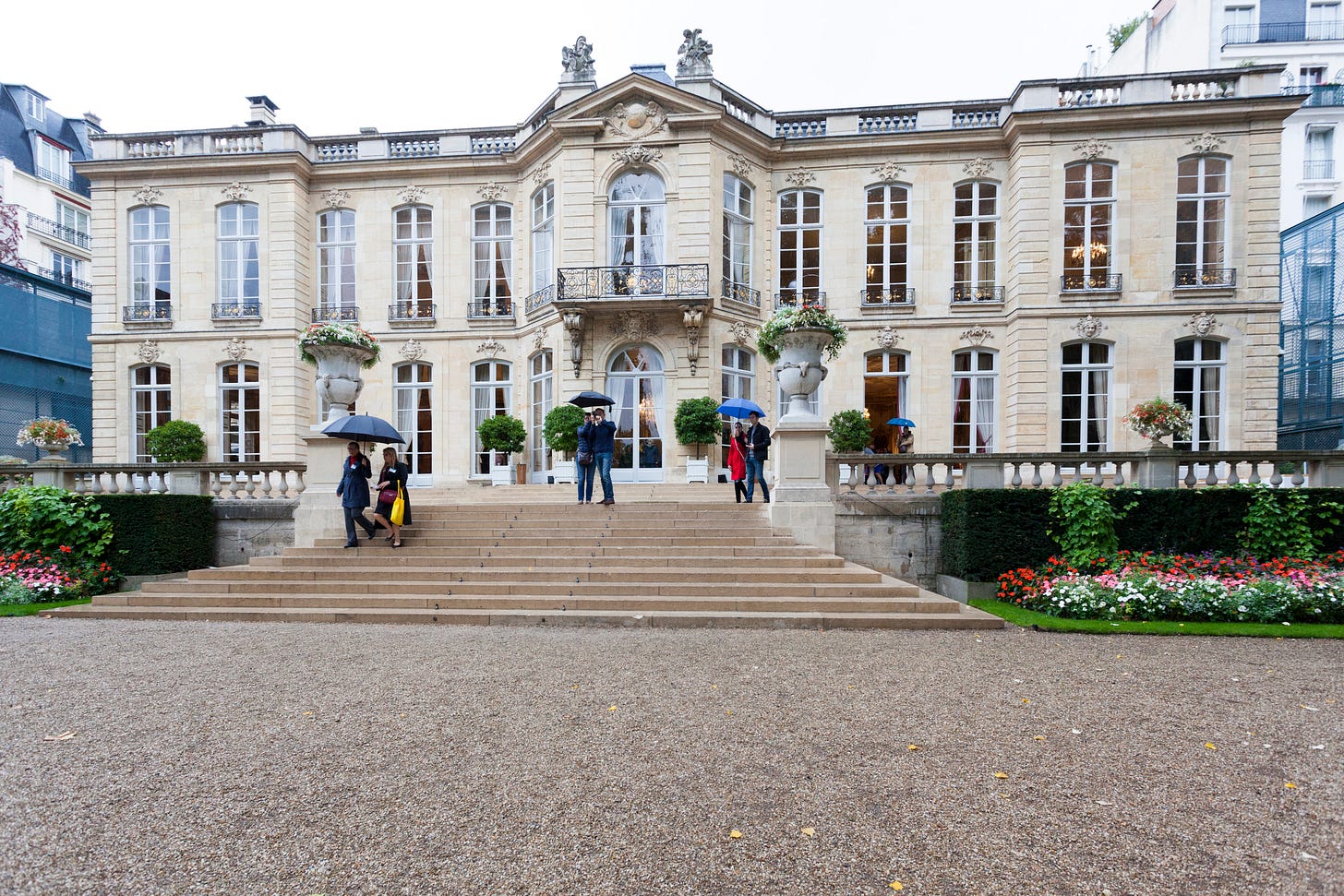
The pressure may therefore be on to find consensus. However, doing so too early may come across as an admission of defeat for the governing majority. Worse still for Macron, even though the French constitution accommodates a separately elected president, having to take cover under a larger NFP could seriously question Macron’s legitimacy to govern.
Having enough seats for a majority grouping between them would still be a pressurised grouping between Ensemble and NFP. But if one side wasn’t willing to agree with the other, would either side want to risk being seen as complicit in RN’s rise to power?
There is also the danger, however, that Macron wouldn’t manage to get the left on side, where many are unhappy with key reforms in his second five-year term such as that which led to the pension age increasing from 62 to 64. By passing the law using Article 49.3 of the constitution, the government didn’t need to consult the National Assembly.
That being said, the government has suspended its plan to reform unemployment benefits, criticised by both RN and the NFP.
Is that an attempt to get the left on side?
Or is it in fact an attempt to get RN on side?
Some say that, with Macron having rushed through a string of senior civil servant appointments last week before this parliament finishes definitively, he is preparing for the fourth ‘cohabitation’ of the French Fifth Republic - where a president loses their party’s majority in the Assembly and is forced to appoint and get on with a prime minister from an opposing party. Perhaps his strategy is to give them a slice of government for three years and let them trip themselves up, or actually have Macron and his allies block RN’s legislation.
It is unclear who will succeed Macron in 2027
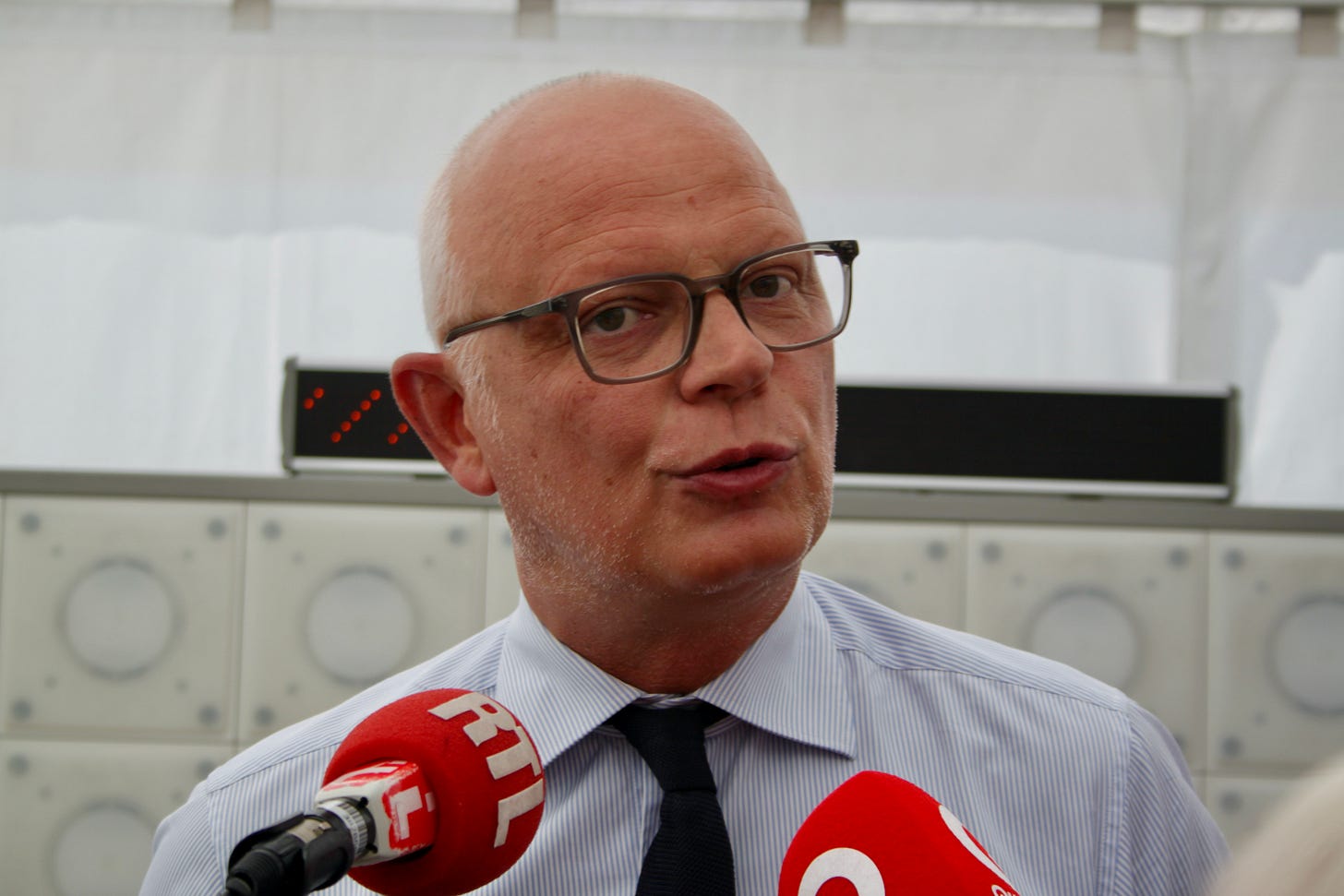
Additionally, three years away from another presidential election, the current decline of Macron’s centrists blurs the line of succession in the post-Macron world.
Former PM and current mayor of the northern French town Le Havre Edouard Philippe is still one of France’s most popular politicians and has been tipped to replace Macron with his small centre-right party Horizons. But would Mr Philippe really want to take on weak centre ground where the left is once again a key player?
But perhaps that would only be the next page of the Macronist-style playbook. While Macron was once an adviser to socialist president François Hollande, he has been seen as a “président des riches” close to the centre-right throughout this term and the last, following relaxations on the tax on the highest earners, a hard line on immigration, police powers and separatism, and the aforementioned pension reform.
Perhaps someone like Philippe could eventually swoop onto Macronist ground, get the left on side, and relaunch the French centre from a left standpoint. But that looks like tough work for a politician who is known to be on the right of politics, at a time when the left is making a resurgence and the centre-right has been caught between Macron and RN. But it would be a classically Macronist “en même temps”, given Macron has come to be defined by policies and language that balance both sides indeciferably in every move.
Macron has a choice: a centre-left or far-right prime minister?
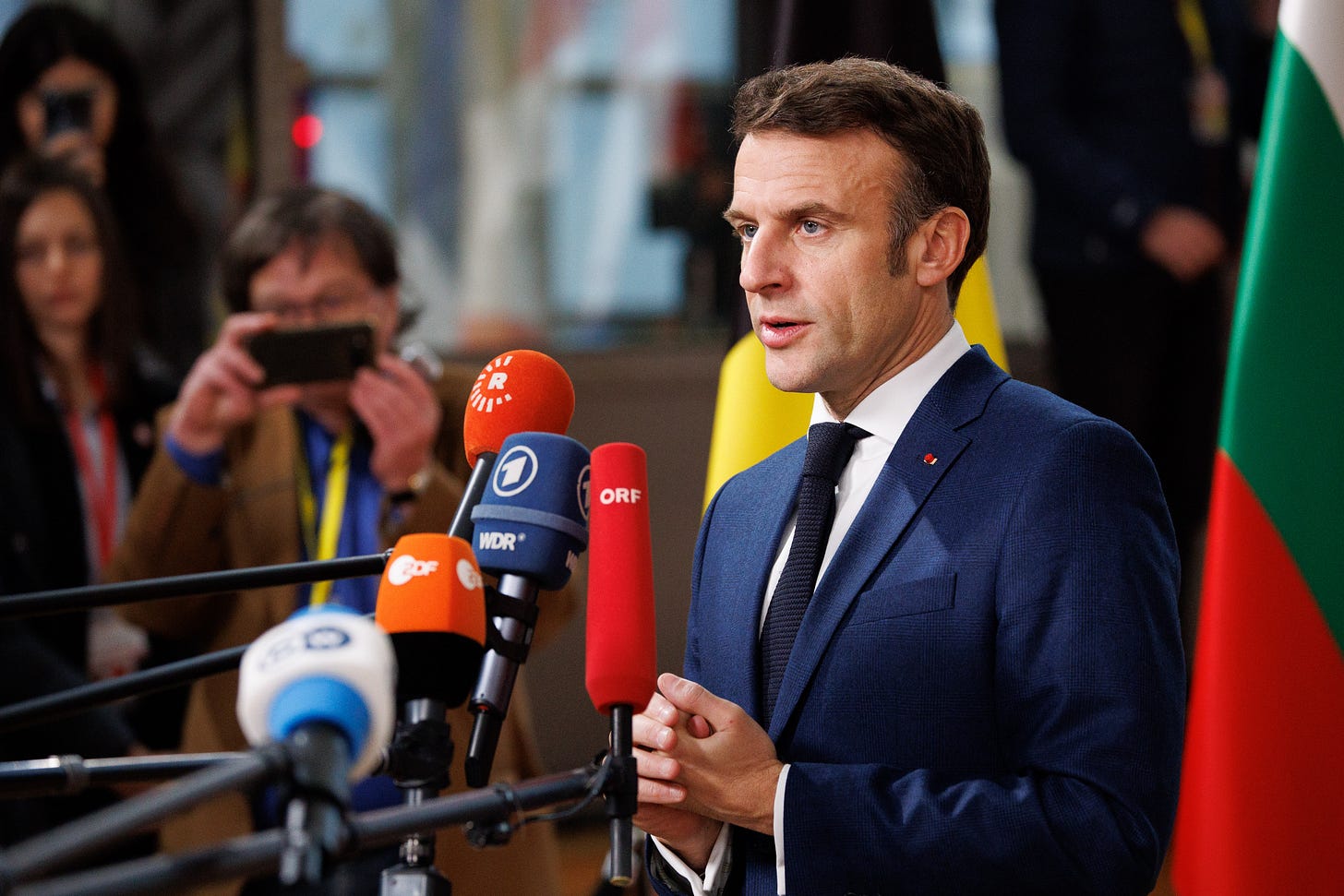
Going back to this election, NFP will want to set strict boundaries on any potential deals with the Macronists, if it comes to that. This is the first time they have made significant inroads since pre-2017 - will they want to align with Macron and risk that success disappearing? Then again, will they want to be seen as complicit in RN’s ascendance if a deal looks possible, but they reject it out of self-preservation in preparation for the 2027 presidential election?
If no one can agree, with RN saying it will only govern with an absolute majority, and with Macron not reaching out to the left and what remains of the centre-right, the National Assembly could be ungovernable.
But there is a way out - some sort of agreement between the centre, centre-left and centre-right in a wide-stretching republicain barrage. But that is a massive ask on each of those groupings in a centralised French political system normally based on majorities and two-horse races, with clear policies and few concessions.
Additionally, some argue that not allowing RN could in fact risk stoking discontentment among that party, who would tantalisingly find themselves only a few seats away from an overall majority. That could only fuel the fire and enable them to solidify the case for an RN presidency in the 2027 election.
That said, French politics is unpredictable
All this being said, what will happen between the first and second rounds of a French parliamentary election is hard to predict, making this article guesswork based on polling.
This election has a record number of second-round contests being fought as triangulaires (three-way contests, 95 of them likely) or even quadrangulaires (four-ways, two of them likely) - the other 404 likely to be two-ways. The third- and four-ways risk splitting the ‘republican’ vote despite 218 third-placed candidates having withdrawn (the majority being NFP candidates). There is no guaranteeing how voters would react when faced with an NFP/RN/Ensemble situation.
Turnout is already around 20% higher than it was in 2022, which could change things all of a sudden, while spoilt ballot papers and abstentionists are likely to make things easier for RN.
The current polls rely on a lot of trends in the first round remaining for the second. And many seats also look simply too close to call.
Are tough negotiations on the cards next week?
Everything is up in the air. Nevertheless, if one thing looks certain, Macron’s centrists will have to work with the left and what remains of the centre-right, especially if they are in opposition against an RN government - and particularly so if RN is short of an absolute majority, which a handful of polls estimate.
If things are seriously close between the ‘republican’ and ‘extreme’ sides of this election, there could be several days of intense negotiations as either side tries to make it to 289 - especially with Marine Le Pen noting that RN would look to get on side “MPs, for example, from around the right, around the left, Les Républicains, who have shown proximity with us in the past.”



